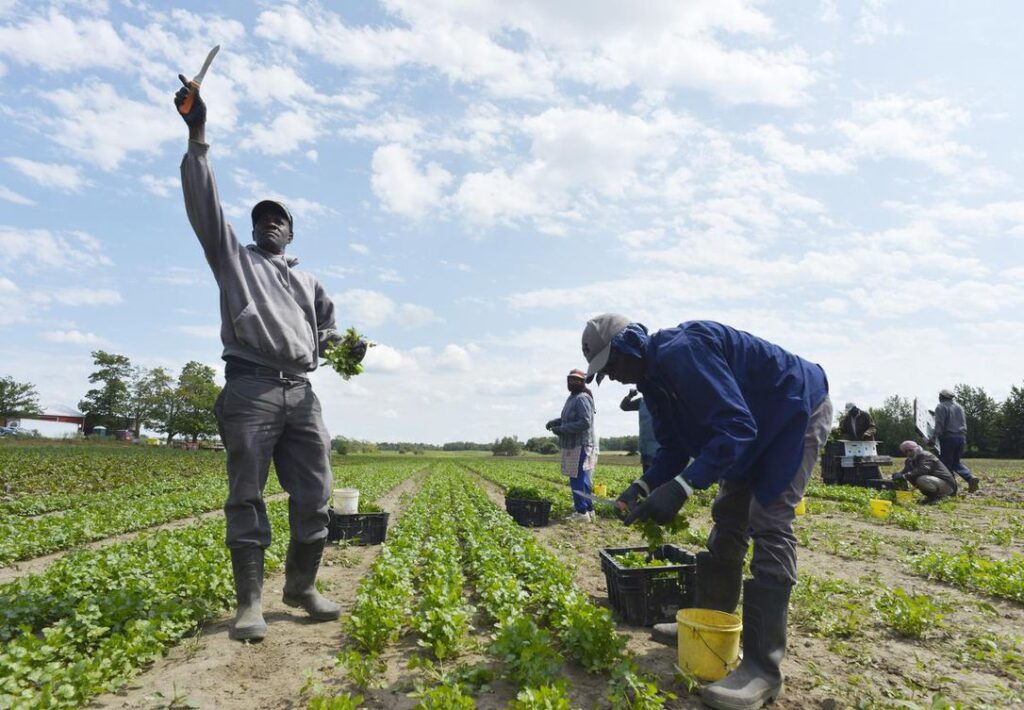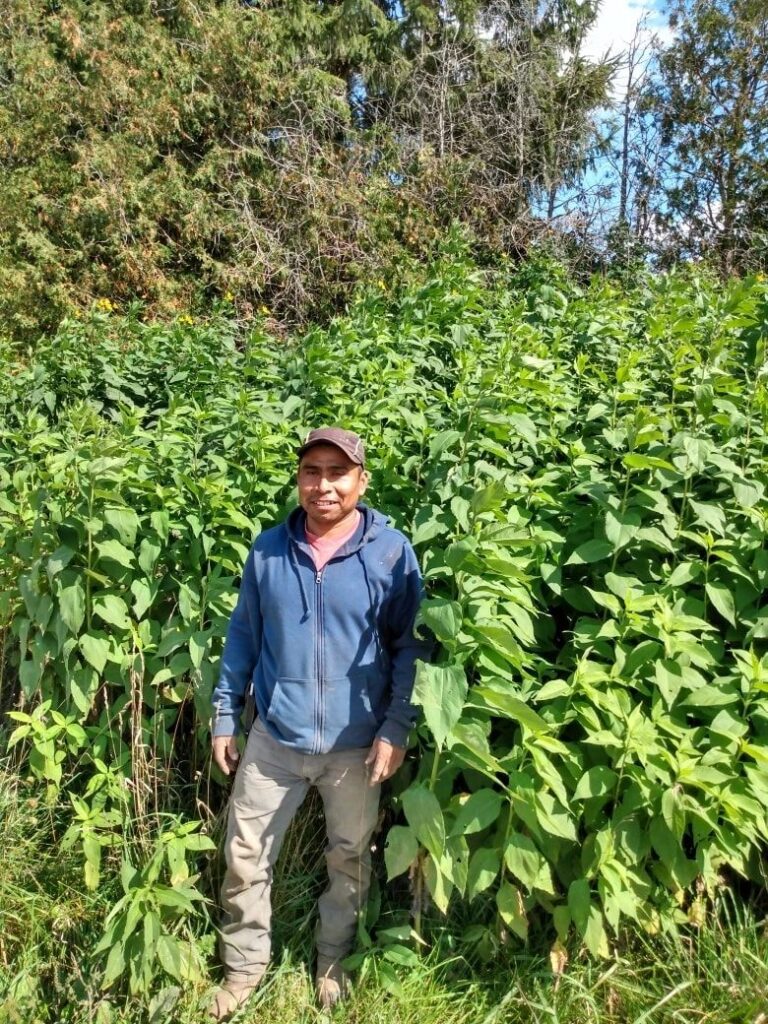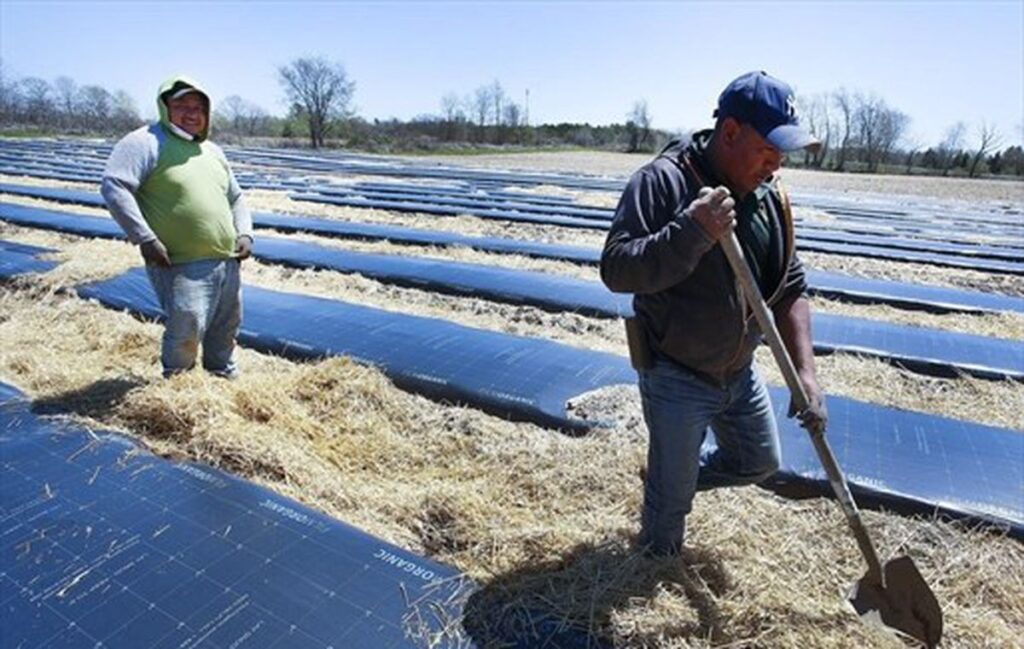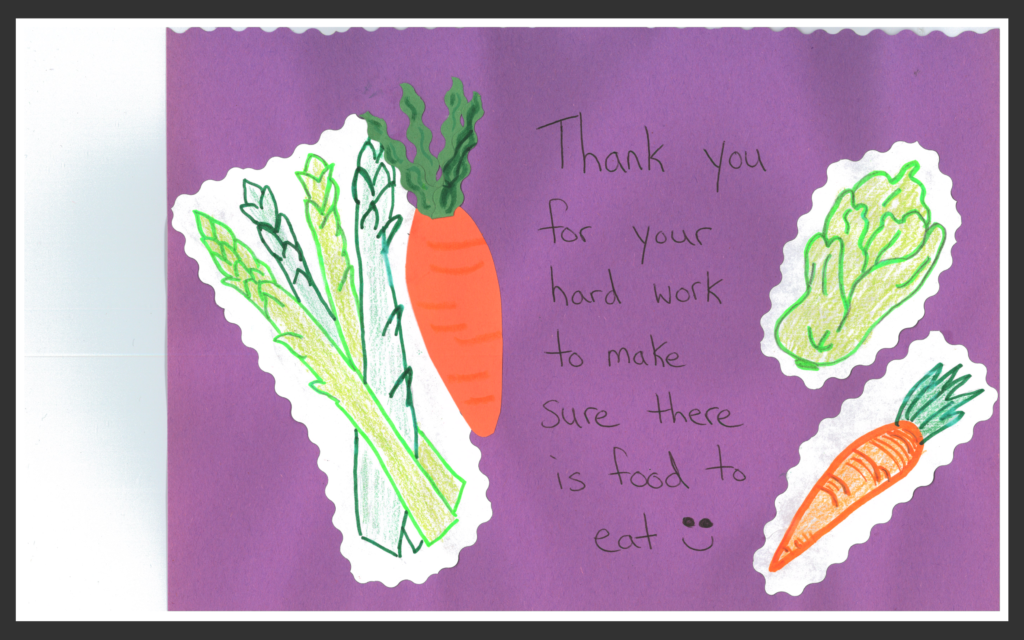
Every year, migrant farm workers come from across Mexico and the Caribbean to support the physically-demanding work of agriculture in Canada through the federal Seasonal Agricultural Worker Program. The workers are essential in ensuring the success and stability of our national food infrastructure; pre-pandemic, over 20,000 migrant workers worked on farms and in greenhouses in Ontario alone. (New Canadians Centre Peterborough) Learn more about the Seasonal Agricultural Workers Program (SAWP) from the federal government.
Although much of this work is critical to, and often associated with large scale fruit picking and greenhouse production, there are several farms in our region who rely on the hard-work, skills and dedication of migrant workers as part of their team in order to produce food for our region.
When thanking our farmers for all that they do, it is important to remember the diversity of farmers that exist in our region and just how essential all of them, including many migrant farmers that come to local farms every season, are to putting fresh food on our tables across the region.
This season, Lunar Rhythm Gardens did a series of #MeetTheFarmers posts that gave customers and eaters across the region the chance to get to know some of these migrant farmers working on their farm. Check out their facebook page to learn more. One such profile introduced us to Jaime, he is from Chiapas, a mountainous region in Southern Mexico. There he works in the Coffee Fields. His wife’s name is Marcelina and they have three children. Two boys and a girl. His favourite sport is soccer and he roots for the Cruz Azul team. His favourite food is Tamales. Jaime has been working in Canada for five seasons, mostly in St. Jerome. Quebec. This is his first year working at Lunar Rhythm Gardens.

This spring the Peterborough Examiner posted a piece about the critical contributions of migrant labourers to our local agricultural systems. In the article Erin MClean of McLeans Berry Farm: “points out that without migrant workers the farm couldn’t survive, and the skilled jobs it provides to local workers would disappear … She is also full of praise for her Mexican crew, loyal, reliable workers who return year after year and become “our extended summer family.” McLean Berry Farm has a total of 15 migrant workers, some of which have been working there for nearly 20 years.
In a second Examiner article, Pick Your Own Berries a Go with Arrival of Migrant Workers, local farmers talk about the importance of migrant workers to their farm and our regions food security.
Without the help of their annual staff, McLean said they wouldn’t be able to harvest their crops. “They’re here, they’re reliable, they know what they’re doing, and they’re invaluable. They’re just a great group of guys,” McLean said.
“We’ve got cousins, brothers, siblings and all sorts of different guys that come together that are actually family, and then they just become our extended summer family,” she said. “We use lots of local labour, but they’re our core harvesting team.”

According to the Lindsay Advocate , the on-set of the covid pandemic created greater strain on this system. This spring, the Advocate learned that the largest field vegetable operation in Kawartha Lakes won’t have a crop without their workers. The farm – which declined to be identified – grows more than 500 acres of vegetables, and has on-farm storage for over 1,500 tonnes of vegetables which are marketed to grocery stores throughout the winter, spring and into early summer, says Maloney.
In Kawartha Lakes there are five farms participating in the program with a total of 43 workers involved. The farms vary in number of workers in the program from a single worker to the large vegetable farm that employs the group of 30. At least one farm said if they can’t get their workers this year, they won’t be able to plant a crop.
This season, we saw like many other things, challenges faced by migrant farmers enhanced by the covid-19 pandemic, and many of these essential workers faced great risk of contracting the virus. Although many local farmers were able to provide safe conditions for migrant farmers, this was unfortunately not the case across the country. To learn more about campaigns around Justice For Migrant Workers check out Food Secure Canada, Harvesting Freedom, & Justice for Migrant Workers
Let’s send a huge thank-you to ALL of our regions farmers for making sure there is food to eat!


Cards sent from community members to local migrant farmers through a New Canadian Centre campaign